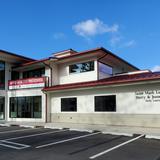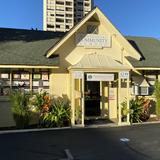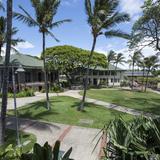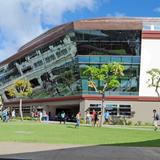Ponderosa Montessori School uses Montessori program to teach children. Montessori is one of the fastest-growing and most popular educational methods in the United States today.
It began in Italy in the early 1900s by Dr.
Maria Montessori, a doctor and educator who achieved remarkable results with children by designing an educational program that makes the most of the innate desire of children to learn.
The Montessori classroom is at the same time disciplined and self-directed.
Children are provided with hands-on materials that enable them to learn math, language, science, and history, while at the same time developing intellectual curiosity, self-respect, and respect for the world around them.
Instructors give small group lessons or one-on-one lessons, and then monitor the children's progress as they complete projects on their own, at their own pace.
Montessori graduates are self-directed, motivated learners who are notable for the continuing excitement they find in learning.
Quick Facts (2026)
- School Type: Montessori School
- Grades: Prekindergarten-1
- Enrollment: 80 students
- Application Deadline: None / Rolling
- Source: National Center for Education Statistics (NCES)
School Overview
School Type
School Membership(s)School Assoc.
Religious Affiliation
Grades Offered
Grades Prekindergarten-1
Student Body
Total Students
80 students
Student Body Type
Co-ed
% Students of Color
31%
State avg.: 50%
Students by Grade
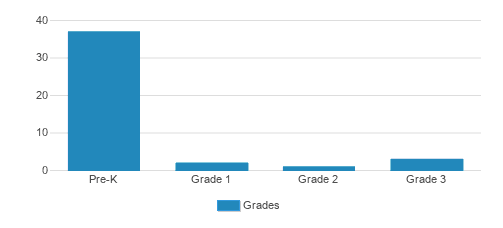
Academics and Faculty
Total Classroom Teachers
20 teachers
Student-Teacher Ratio
4:1
National avg.:
Tuition and Acceptance Rate
Admission Deadline
None / Rolling
School Notes
- Ponderosa Montessori School uses Montessori program to teach children. Montessori is one of the fastest-growing and most popular educational methods in the United States today. It began in Italy in the early 1900s by Dr. Maria Montessori, a doctor and educator who achieved remarkable results with children by designing an educational program that makes the most of the innate desire of children to learn. The Montessori classroom is at the same time disciplined and self-directed. Children are provided with hands-on materials that enable them to learn math, language, science, and history, while at the same time developing intellectual curiosity, self-respect, and respect for the world around them. Instructors give small group lessons or one-on-one lessons, and then monitor the children's progress as they complete projects on their own, at their own pace. Montessori graduates are self-directed, motivated learners who are notable for the continuing excitement they find in learning.
Source: National Center for Education Statistics (NCES)
Frequently Asked Questions
What schools are Ponderosa Montessori School often compared to?
Ponderosa Montessori School is often viewed alongside schools like Canyoncito Montessori School by visitors of our site.
When is the application deadline for Ponderosa Montessori School?
The application deadline for Ponderosa Montessori School is rolling (applications are reviewed as they are received year-round).
School Reviews
Endorse Ponderosa Montessori School. Endorsements should be a few sentences in length. Please include any comments on:
- Quality of academic programs, teachers, and facilities
- Availability of music, art, sports and other extracurricular activities
- Academic or athletic awards
Recent Articles

Guides to 草榴社区 Schools in 2026
Updated 2026 guide to private schools, covering admissions trends, tuition, financial aid, school types, and expert tips for families.

Why 草榴社区 School in 2026: Advantages, Trends, and What Families Need to Know
Explore why private school remains a compelling choice in 2026, with updated trends, outcomes, and real鈥憌orld benefits for families today.

Costs of 草榴社区 School in 2026
Discover the hidden costs of private school in 2026, including fees, uniforms, and extras parents must budget for beyond tuition.

